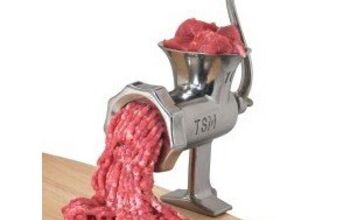General Motors Death Watch 250: Interview With a GM Bondholder

GM’s investors and bondholders have taken their lumps. The value of their investments have plummeted and they’ve been blamed for enabling GM’s mismanagement. Hedge fund managers and institutional investors are not the most popular people in the wake of the financial meltdown so it’s easy to forget that many investors are not Wall Street wheeler dealers, but regular folks with investments.
Patricia St. Pierre is a nice lady. She and her husband Cliff worked hard, raised a family, got their kids through college and retired on their investments. They live on Grosse Ile, a comfortable island suburb downriver of Detroit. She’s 70 now and she’s worried about having to go back to work because their life savings may be wiped out in a GM bankruptcy.
Mrs. St. Pierre and her husband have what she calls a “large amount” invested in unsecured GM bonds. The St. Pierres attended a meeting at Warren’s town hall, across the street from GM’s Tech Center with other individual bond holders on Thursday as the President was announcing the bankruptcy of crosstown rival Chrysler. When I asked her how she came to own the bonds, she said that they had moved to bonds during a downturn in the stock market with their mutual funds. They wanted to try “something that was safe”.
They initially did well with Ford bonds but moved to GM debt three years ago when Ford seemed to be at greater risk than GM. As their broker told them, “you don’t think they’ll ever be out of business.” That same reason is why they haven’t sold before now. They also didn’t know at first that the debt was unsecured. Then the bottom fell out last fall. “Everything turned on a dime.”
Though neither has worked for the company in years, the St. Pierres have ties to GM. Her father is a GM retiree and she worked for GM right out of high school for seven years. Cliff St. Pierre graduated from the General Motors Institute. LIke GMI grads back in the day he worked as an intern at GM and then started his career there.
The St. Pierres live off the income from their investments and Patricia acknowledged that they’ve earned interest since owning the bonds, but they face losing all the principal since the bonds are unsecured. GM has offered debt holders 225 shares of stock in a reorganized GM in exchange for $1000 of the $27 billion in debt GM owes, plus whatever accrued interest the bonds have at this point. If they don’t accept the deal, GM will declare bankruptcy and they’ll get nothing.
The stock offered to bondholders will represent 10% of GM’s equity. Stockholders, punished for enabling a feckless board of directors, will own 1 percent of GM stock. The government will own 50 percent of GM, and the UAW’s VEBA will own the remaining 39 percent.
One thing that troubles the St. Pierres the most is that they are being left completely out of the loop and not informed by either GM or the government. While the large bondholders are negotiating with and in constant contact with GM and the Presidential Task Force on Automobiles (PTFOA), the St. Pierres haven’t heard a thing except for the most recent prospectus from GM.
There is nobody in the process representing their interests. They’ve contacted Senators Stabenow and Levin to complain but their elected officials haven’t been very reassuring. They feel pretty helpless. Their broker doesn’t really know any more than they do. The St. Pierres aren’t destitute, but you could hear the worry in her voice. “I’m glad my kids aren’t about to graduate (high school) and go to college.”
While it can be argued that they took a risk and lost their bet, the government cutting in line ahead of other prior creditors creates a huge dilemma for investors, investors that may be you, your neighbors and your family members. As Cliff St. Pierre said, “who will want to buy bonds?” Who will want to invest if the government is going to step in and declare your investment virtually worthless?
Some say that GM’s stakeholders, management, the UAW, shareholders and bondholders, all deserve blame for the company’s decline, but the bondholders and stockholders, while perhaps giving management too little oversight, played by well defined rules, the rules and laws we’ve used to become the wealthiest society in the planet’s history. Now the President is rewriting the rules.
When I asked her who she thought would protect her interests more, the administration in Washington or a bankruptcy judge, Patricia laughed ruefully and said the bankruptcy judge. She’s not happy about the government owning GM. GM’s bondholders, after all, do have a bigger investment in the company than the government. “It’s not a good situation,” she said.

Ronnie Schreiber edits Cars In Depth, the original 3D car site.
More by Ronnie Schreiber
Latest Car Reviews
Read moreLatest Product Reviews
Read moreRecent Comments
- SCE to AUX All that lift makes for an easy rollover of your $70k truck.
- SCE to AUX My son cross-shopped the RAV4 and Model Y, then bought the Y. To their surprise, they hated the RAV4.
- SCE to AUX I'm already driving the cheap EV (19 Ioniq EV).$30k MSRP in late 2018, $23k after subsidy at lease (no tax hassle)$549/year insurance$40 in electricity to drive 1000 miles/month66k miles, no range lossAffordable 16" tiresVirtually no maintenance expensesHyundai (for example) has dramatically cut prices on their EVs, so you can get a 361-mile Ioniq 6 in the high 30s right now.But ask me if I'd go to the Subaru brand if one was affordable, and the answer is no.
- David Murilee Martin, These Toyota Vans were absolute garbage. As the labor even basic service cost 400% as much as servicing a VW Vanagon or American minivan. A skilled Toyota tech would take about 2.5 hours just to change the air cleaner. Also they also broke often, as they overheated and warped the engine and boiled the automatic transmission...
- Marcr My wife and I mostly work from home (or use public transit), the kid is grown, and we no longer do road trips of more than 150 miles or so. Our one car mostly gets used for local errands and the occasional airport pickup. The first non-Tesla, non-Mini, non-Fiat, non-Kia/Hyundai, non-GM (I do have my biases) small fun-to-drive hatchback EV with 200+ mile range, instrument display behind the wheel where it belongs and actual knobs for oft-used functions for under $35K will get our money. What we really want is a proper 21st century equivalent of the original Honda Civic. The Volvo EX30 is close and may end up being the compromise choice.


































Comments
Join the conversation
Please, enough of this "broker" bashing. Brokers by definition can recommend any bonds, and by the way, there's no money in it for the broker. To assume this was a "sale" is wrong. The family must bear some responsibility. This went terribly wrong but no one person or firm is to blame. It was a perfect storm that led to this issue and it's time for them to take their medicine and move on.